From March 10th to 15th, the second transnational meeting of the European Reefab project took place in Bordeaux, with the participation of the Municipality of Cinisello Balsamo, alongside FabLab BNC (Spain), Art Square Lab (Luxembourg), and Cap Sciences (France).

Reefab is a 3-year ERASMUS+ project that promotes entrepreneurial spirit, active citizenship, and peer collaboration among young people. Through activities, projects, and workshops in FabLabs, the goal is to address eco-anxiety by offering new opportunities and professional guidance.
The Cap Sciences FabLab was the ideal place to collaborate on future activities and complete the first project result: the Atlas.

Day 1
On the first day, we were warmly welcomed with a tour of Cap Sciences, which offers a permanent space where visitors can explore exhibitions, engage in activities, and reflect on the complexities of today’s world. We then visited their FabLab, a real workshop that provides access to tools and materials to experiment, prototype, and learn.
After the visit, we were introduced to La Cité Bleue, a project launched in 2022, covering 55,000 m², focused on ecological transition. This space hosts projects and organizations working to promote ecological and social actions.
During the day, we worked on analyzing the Atlas, a collective document that collects testimonies and observations made by FabLabs and project partners. The Atlas will be released to share reflections and invite other collaborators to join the project, exploring how FabLabs can adapt to the challenges of climate change.

Day 2
The second day began with a reflection exercise on the anxieties related to climate change, youth, and future jobs. We then started a Design Sprint session to design and develop activities for future workshops that will be tested in the field in the coming months. In our case, the workshops will focus on the Makers Lab within the Cultural Center Il Pertini and will aim to enhance the skills of young people to co-create activities centered on environmental sustainability and ecological awareness.
The day ended with a final session to reflect on the concepts of inclusivity, accessibility, diversity, and equality, which allowed us to adapt the activities designed earlier to make them more inclusive.

Day 3
On the last day, we presented our activity to five young people in professional training (18-25 years old) and two youth workers. Their feedback was invaluable in refining and improving our approach.
Our meeting concluded with a reflection session on the results achieved during the Design Sprint and future projects.
The goal now is to make these workshops accessible to all makerspaces interested in becoming a ReeFab center and to young people seeking a sustainable professional path.

If you are curious to learn more, you can follow us on the Reefab website: https://www.reefab.eu

